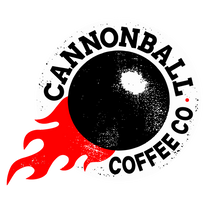If you’re serious about your health and performance - then you’re likely pretty serious about what you’re putting in your body.
So when you hear that your daily cup of coffee could contain mycotoxins and toxic mould - you begin to take notice. Especially when mould-filled coffee is attributed to not only eroding your performance and creating brain fog - but a host of health concerns from chronic inflammation to an increased risk of cancers.
In fact, you should take notice.
But the reality is, all legitimate research shows that mycotoxins and mould aren’t in your average cup of coffee - and that even if a raw bean had been misprocessed and grown mould, that over 80% of trace mycotoxins burned off in the roasting process alone (1) - not too mention the brewing.
So where does all the hype come from?
Unfortunately the majority of misinformation around mycotoxins in coffee comes from a coffee company who claims to sell “superior, clean beans.” While mycotoxins and mould do pose legitimate health hazards, research has found nearly no incidences of toxic levels in even low quality coffee beans.
But given the serious performance and health claims associated with mycotoxins and mouldy coffee - we figured it was worthy of a deep dive into the topic.
What are Mycotoxins & How Do They Get In Coffee?
Mycotoxins are naturally occuring toxins that are by-products of certain moulds (fungi).
Mycotoxins and mould growth are commonly associated with poor harvesting practices, including letting harvested products sit for extended periods and failing to control moisture levels during storage. This isn’t unique to coffee, in fact mycotoxins have been found in a variety of crops including grains, nuts, fruits - all at a higher level than coffee beans (2).
Consuming mycotoxins for an extended period of time has been associated with a whole host of health effects from acute food poisoning to chronic inflammation, decreased immune responses, and even cancer (3).
Now, the truth is that mould and mycotoxins can be found in coffee - but all studies finding mycotoxins in coffee have been in raw unroasted green coffee beans.
These beans are just like the seed of any fruit - so of course, like any food, improper storage will lead to mould growth. But the reality is, the beans must still be removed from the outer fruit, washed, and dried before being roasted.
This raw green coffee bean harvesting is done by farmers and washing stations who are paid solely based on the quality test of their coffee - so it’s absolutely in their best interests to ensure bean harvesting is done at the highest quality.
Even if potentially mouldy beans managed to get through the meticulous harvesting and cleaning process - beans are then roasted at over 200℃. The coffee roasting process has been shown to burn over 80% of mycotoxins in mouldy beans (4).
So, is there mould in my coffee?
If you’re drinking a high quality specialty coffee - the answer is assuredly no, there is not mould in your coffee.
A European study looked at 633 coffee brands for levels of mycotoxins - and found that 75% of coffee had “undetectable levels,” while the other 25% had such trace elements of that you’d need to drink 4 cups per day for a week to get to just 2% of exposure levels deemed unsafe (5, 6).
This means that while high quality coffee certainly doesn’t have mould, even those low quality coffees (the kind of stuff that goes into instant coffee, or gets sold at discount supermarkets for £1.99 a bag) don’t have mould levels anywhere near concernable.
All high quality (or even mediocre) coffee companies are committed to high quality beans and harvesting processes. This is at very the heart of the third wave speciality coffee movement. Companies that care about crafting high quality coffee, like we are at Cannonball Coffee, are obsessive about the process that goes into each cup of coffee. From ensuring that each crop of bean is grown and processed to perfection, to maintaining beans at a particular level of moisture and fresh roasting beans at specific temperatures.
Quality coffee making is like quality wine making, it’s an art.
So to assume that “the majority of coffee brands” have a level of toxin mould in their coffee is complete misinformation.
One rumour about mycotoxins is true. And it’s one we take seriously at Cannonball coffee. Multiple research studies has found that decaf coffee has the increased risk of for higher levels of mycotoxins in coffee. (7, 8)
Caffeine has been found to be a defence mechanism in plants and the source of everything for productivity in humans. We are incredibly selective about the growers we buy from and how they harvest their beans. Skillfully hand-roasting in small batches not only creates the best tasting high caffeine coffee on the market but also kills mycotoxins - just in case.
Just one more reason to drink high quality strong coffee!

